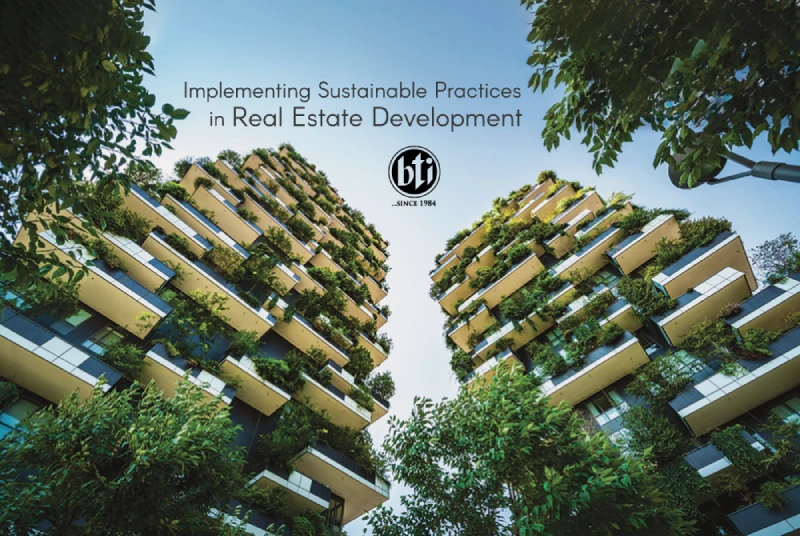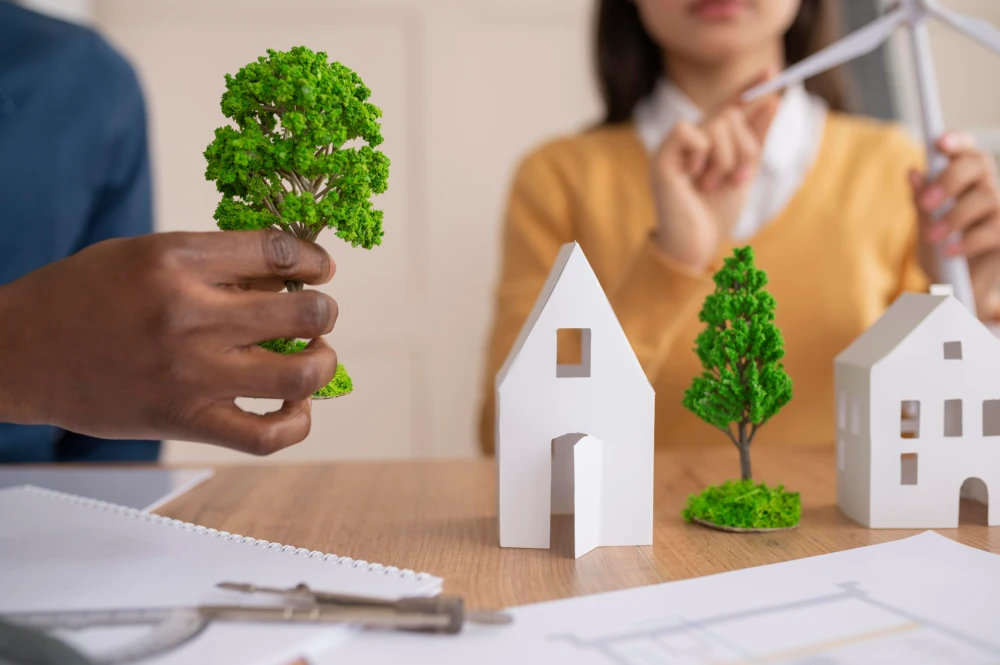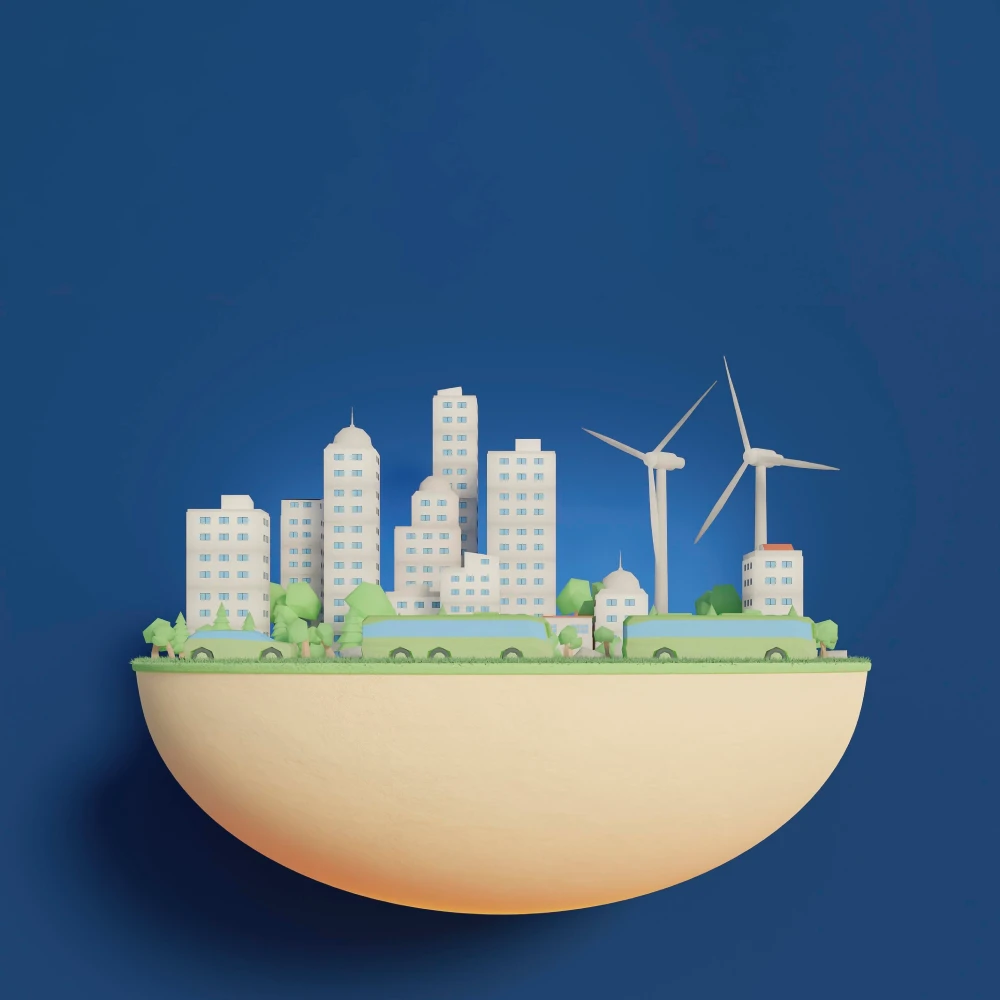
The world is undergoing a transformation in how we think about growth, particularly in the case of real estate development. Previously, the focus would be on maximizing space, generating profits, and creating structures that were visually striking. Today, however, this industry is slowly moving towards a more sustainable approach to building and construction. Implementing sustainable practices in real estate development is not just an ethical choice anymore—it is becoming an essential part of a forward-thinking strategy that in future should benefit our environment, the community, and upcoming generations.
As cities keep growing and populations expanding, the pressure on natural resources and ecosystems will simultaneously keep increasing. This is why sustainable real estate practices have become more essential now than ever before. Developers are beginning to embrace innovative solutions that reduce their environmental impact while also enhancing the residents’ quality of life. Let us delve into some of the strategies for incorporating sustainability into real estate development.
1. Energy-Efficient Building Design
One of the main principles of sustainable real estate is energy efficiency. A major portion of the world’s energy consumption comes from buildings, and by designing energy-efficient structures, real estate developers can greatly reduce their carbon footprints. This can be done through the following steps:
- Proper Insulation: To help maintain indoor temperatures, as well as reduce the need for heating and air conditioning, which consume large amounts of energy, proper insulation plays a vital role.
- LED Lighting: LED lighting consumes less energy than traditional lighting and also lasts longer, helping to lower electricity use.
- HVAC Systems to increase energy efficiency: Modern ventilation, heating, and air conditioning (HVAC) systems are more efficient, reducing both operating costs & energy consumption.
- Renewable Energy: Placing solar panels on rooftops or in the surrounding areas allows buildings to harness renewable energy from the sun, lowering dependency on grid power.
By prioritizing energy efficiency from the design stage, real estate developers can significantly reduce the long-term energy costs for residents & contribute to the reduction of emissions of greenhouse gases.

2. Sustainable Materials and Construction Methods
The raw materials used in construction play an important role in the sustainability of a building. The use of recycled, renewable, or locally sourced materials can lower the environmental impact associated with extraction, transportation, and waste. For example:
- Recycled Materials: Steel, glass, and concrete can all be reused and recycled, which can cut down on the need for raw materials and reduce landfill waste.
- Timber and Bamboo: Fast-growing and renewable, bamboo is a sustainable alternative to hardwood. On the other hand, sustainably harvested timber supports responsible forestry practices.
- Green Roofing: Green roofs, which are covered with plants, help to insulate the building, reduce heat islands in urban areas, and also improve air quality.
Incorporating these renewable materials into the construction process reduces environmental harm, and also supports the creation of buildings that are healthier for the residents and more connected to their environment.
3. Water Conservation and Management
Water is a critical yet often overlooked resource in the development of buildings. Sustainable developers recognize the importance of managing water resources wisely to both minimize consumption and reduce the impact on local water systems. Strategies can include:
- Low-Flow Fixtures: You can install water-efficient faucets, toilets, and showerheads to reduce water consumption while maintaining performance.
- Rainwater Harvesting: Collecting and storing rainwater for use in landscaping or non-potable applications could reduce dependency on municipal water systems.
- Efficient Irrigation Systems: Using smart irrigation technologies ensures that plants receive only the necessary amount of water, preventing overuse and runoff.
If real estate developers begin to consider water conservation at every stage of development, they can create properties that make more efficient use of water, conserving this vital resource for the future.
4. Climate Adaptation & Building for Resilience
Climate change is a natural phenomenon that continues to affect weather patterns and environmental conditions. It is becoming increasingly important to design buildings that are able to withstand extreme weather. In order to build for future generations, real estate developers are now looking at ways in which they can future-proof projects to allow them to stand the test of time and withstand adverse climatic conditions. This can include:
- Flood-Resilient Design: Creating flood barriers or raising structures to protect against heavy rainfall and/ or rising sea levels
- Heat-Resistant Materials: Using materials that can tolerate extreme heat and help keep buildings cool without having to depend heavily on air conditioning
- Natural Disaster Preparedness: Incorporating elements like wind-resistant windows, earthquake-resistant foundations with features like column jacketing, and other features to ensure that buildings can withstand natural calamities
When real estate developers keep resilience in mind, they can ensure that their projects will be safe and sustainable in the face of unpredictable climate events.

5. Green Certifications and Standards
As sustainability becomes more mainstream, real estate developers are increasingly seeking certifications and adhering to standards that demonstrate their commitment to environmental responsibility. Some of the most widely recognized certifications include:
- LEED (Leadership in Energy and Environmental Design): LEED certification provides a framework for developing high-performance and sustainable buildings. It focuses on water and energy savings, reduction of CO2 emissions, improved quality of indoor environment, and ownership of resources.
- WELL Building Standard: This certification focuses on the health and well-being of occupants, ensuring that buildings promote a high quality of life through features like natural light, clean air, and green spaces.
Achieving these certifications often requires a commitment to sustainable practices at every stage of development, from site selection and design to construction and ongoing maintenance. For real estate developers, these certifications demonstrate environmental responsibility while also offering a competitive edge in the market.
6. Social Sustainability & Community
Sustainability is as much about people as it is about the environment. Real estate development has a deep impact on the communities where it takes place, and it is important to consider social sustainability with environmental goals. This can include:
- Affordable Housing: When building a development, integrating affordable housing into it could help provide diverse & inclusive communities where people of all economic backgrounds can live in harmony.
- Access to Green Spaces: Building walkways, parks, and outdoor recreational areas within developments could improve the quality of life for residents and encourage community engagement.
- Transportation Options: Designing communities that have easy walking access or have access to public transportation could reduce dependency on cars, promoting healthier lifestyles & cutting down on emissions.
By focusing on the social well-being of residents, real estate developers can create socially equitable & environmentally sustainable spaces.
As the world tries to tackle climate change and resources running out rapidly, the real estate industry has a unique opportunity to lead the way in sustainable development. If real estate developers could choose to go for energy-efficient designs, use sustainable or recyclable materials, conserve water, and adapt to the harsh realities of climate change, they could truly appreciate creating buildings that are better for the residents and our planet on the whole.
The key to a sustainable future lies in a holistic approach that combines economic, environmental, and social sustainability. The journey will undoubtedly require effort and resources to be invested; the rewards are clear: these steps will strengthen communities, healthier buildings, and a better world for future generations.
As conscientious citizens of the world, we can build lasting legacies that have a positive impact on the society and the planet by merging these sustainable practices with real estate development.